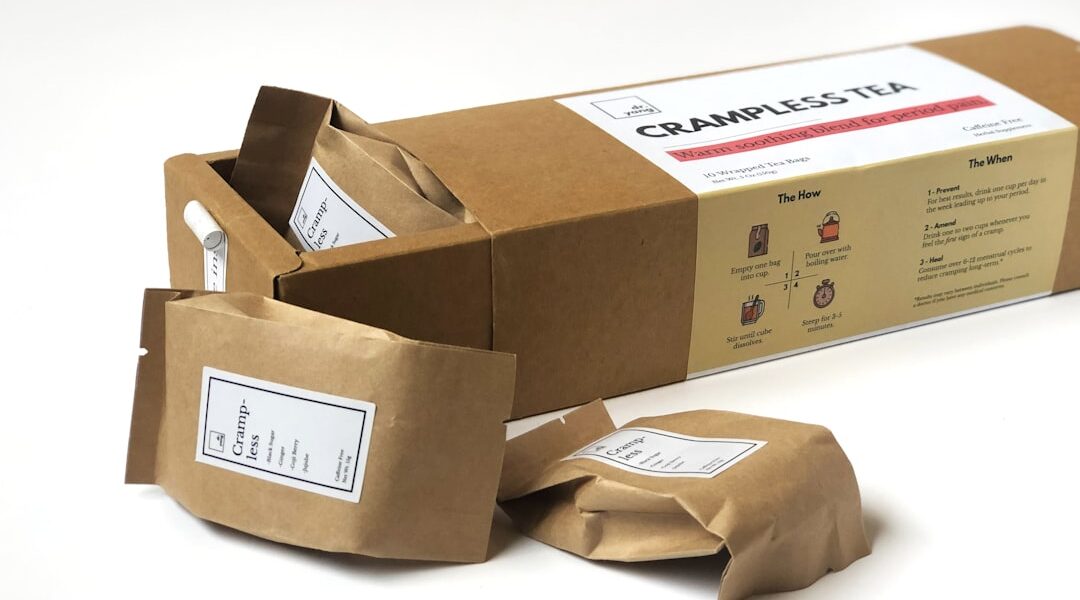Gastritis is a condition characterized by inflammation of the stomach lining. This inflammation can be caused by a variety of factors, including bacterial infections, excessive alcohol consumption, chronic vomiting, stress, and the prolonged use of nonsteroidal anti-inflammatory drugs (NSAIDs) such as aspirin or ibuprofen. The symptoms of gastritis can vary from person to person but may include abdominal pain, nausea, vomiting, indigestion, bloating, and a feeling of fullness in the upper abdomen.
In some cases, gastritis can lead to more serious complications such as stomach ulcers or bleeding. Gastritis can be acute, meaning it comes on suddenly and is usually short-lived, or chronic, meaning it persists over a long period of time. Acute gastritis is often caused by a specific event or trigger, such as a bacterial infection or excessive alcohol consumption, while chronic gastritis may develop gradually over time and can be caused by ongoing irritation of the stomach lining.
It’s important to seek medical attention if you suspect you have gastritis, as a healthcare professional can help determine the underlying cause and recommend an appropriate treatment plan.
Key Takeaways
- Gastritis is the inflammation of the stomach lining, often caused by excessive alcohol consumption, prolonged use of NSAIDs, or bacterial infections.
- A diet rich in fruits, vegetables, whole grains, and lean proteins can help manage gastritis symptoms and promote healing.
- Soothing ingredients like ginger, turmeric, and chamomile can provide relief from gastritis symptoms such as pain and discomfort.
- Nutritious recipes like quinoa salad, baked salmon, and vegetable stir-fry can be gentle on the stomach and provide essential nutrients for healing.
- Herbal teas and beverages like peppermint tea, licorice tea, and coconut water can help soothe gastritis symptoms and promote digestion.
The Importance of Diet in Managing Gastritis
The Importance of a Gentle Diet
For individuals with gastritis, it’s important to focus on a diet that is gentle on the stomach and promotes healing. Certain foods and beverages can exacerbate inflammation and irritation of the stomach lining, while others can help soothe and heal the digestive tract.
Foods to Avoid
Avoiding spicy foods, acidic foods and beverages, caffeine, alcohol, and fatty or fried foods is essential for managing gastritis. These items can irritate the stomach lining and worsen symptoms.
Foods to Focus On
Instead, focus on consuming a variety of whole foods such as fruits, vegetables, lean proteins, whole grains, and healthy fats. These foods are easier for the stomach to digest and can provide essential nutrients to support overall health and healing.
Soothing Ingredients for Gastritis Relief

When dealing with gastritis, incorporating soothing ingredients into your diet can help alleviate symptoms and promote healing of the stomach lining. Some of these ingredients include: – Ginger: Known for its anti-inflammatory properties, ginger can help reduce inflammation in the stomach and alleviate symptoms of gastritis. It can be consumed fresh, as a tea, or in supplement form.
– Turmeric: Another powerful anti-inflammatory spice, turmeric can help reduce inflammation in the digestive tract and support overall digestive health.
It can be added to curries, soups, or taken as a supplement.
– Aloe Vera: Aloe vera juice has been used for centuries to soothe digestive issues and promote healing of the stomach lining. It can help reduce inflammation and provide relief from gastritis symptoms.
– Chamomile: Chamomile tea is known for its calming properties and can help soothe the stomach and reduce inflammation. It can be consumed regularly to promote digestive health.
Incorporating these soothing ingredients into your diet can help manage symptoms of gastritis and support overall digestive health.
Easy and Nutritious Gastritis-Friendly Recipes
| Recipe Name | Preparation Time | Calories per Serving | Protein per Serving | Fiber per Serving |
|---|---|---|---|---|
| Quinoa Salad | 20 minutes | 250 | 10g | 5g |
| Ginger Carrot Soup | 30 minutes | 180 | 6g | 3g |
| Baked Salmon with Steamed Vegetables | 25 minutes | 300 | 20g | 4g |
When managing gastritis, it’s important to focus on easy and nutritious recipes that are gentle on the stomach and promote healing. Here are a few gastritis-friendly recipes to try: – Oatmeal with Banana: Cooked oats with sliced banana and a drizzle of honey make for a gentle and nourishing breakfast option for individuals with gastritis.
– Baked Chicken with Steamed Vegetables: A simple and satisfying meal that provides lean protein and a variety of nutrients from steamed vegetables.
– Quinoa Salad with Cucumber and Mint: A refreshing and light salad that is easy on the stomach and provides essential nutrients from quinoa and fresh vegetables.
– Ginger Turmeric Smoothie: A soothing and anti-inflammatory smoothie made with ginger, turmeric, banana, and almond milk. These recipes are easy to prepare and can help support digestive health while managing symptoms of gastritis.
Beverages and Teas for Gastritis Relief
In addition to incorporating soothing ingredients into your diet, consuming certain beverages and teas can also help alleviate symptoms of gastritis. Some beverages to consider include: – Herbal Teas: Chamomile tea, ginger tea, and peppermint tea can help soothe the stomach and reduce inflammation. These teas can be consumed throughout the day to promote digestive health.
– Aloe Vera Juice: Aloe vera juice has been used for centuries to promote digestive health and soothe the stomach lining.
It can be consumed in small amounts to help alleviate symptoms of gastritis.
– Coconut Water: Coconut water is a gentle and hydrating beverage that can help soothe the stomach and provide essential electrolytes. These beverages can be incorporated into your daily routine to help manage symptoms of gastritis and promote overall digestive health.
Tips for Meal Planning and Portion Control

When managing gastritis, it’s important to pay attention to meal planning and portion control to avoid exacerbating symptoms. Here are some tips to consider: – Eat Smaller, More Frequent Meals: Consuming smaller meals throughout the day can help prevent overloading the stomach and minimize discomfort.
– Avoid Eating Late at Night: Eating late at night can increase the risk of acid reflux and worsen symptoms of gastritis. Try to eat your last meal at least 2-3 hours before bedtime.
– Stay Hydrated: Drinking plenty of water throughout the day can help support digestion and prevent dehydration, which can exacerbate symptoms of gastritis.
– Be Mindful of Trigger Foods: Pay attention to how your body reacts to certain foods and beverages, and avoid those that worsen symptoms.
By paying attention to meal planning and portion control, you can better manage symptoms of gastritis and support overall digestive health.
Lifestyle Changes for Long-Term Gastritis Management
In addition to dietary changes, making certain lifestyle adjustments can also contribute to long-term management of gastritis. Some lifestyle changes to consider include: – Stress Management: Chronic stress can exacerbate symptoms of gastritis. Incorporating stress-reducing activities such as yoga, meditation, or deep breathing exercises can help manage stress levels.
– Regular Exercise: Engaging in regular physical activity can support overall digestive health and reduce inflammation in the body.
– Avoiding Smoking: Smoking can irritate the stomach lining and worsen symptoms of gastritis.
Quitting smoking can have a positive impact on digestive health.
– Getting Adequate Sleep: Prioritizing quality sleep is essential for overall health, including digestive health. Aim for 7-9 hours of sleep per night to support healing. By making these lifestyle changes in addition to dietary adjustments, individuals with gastritis can better manage their condition in the long term and promote overall well-being.
In conclusion, managing gastritis involves understanding the condition, making dietary adjustments, incorporating soothing ingredients into your diet, preparing nutritious recipes, consuming beneficial beverages and teas, practicing meal planning and portion control, and making lifestyle changes for long-term management. By taking a comprehensive approach to managing gastritis, individuals can alleviate symptoms, promote healing of the stomach lining, and support overall digestive health. It’s important to work closely with a healthcare professional to develop a personalized treatment plan that addresses the underlying cause of gastritis and supports individual needs for optimal well-being.
If you’re looking for some delicious and soothing recipes for gastritis, be sure to check out the article on Divinely Hers. They have a great selection of recipes that are gentle on the stomach and can help alleviate symptoms of gastritis. Whether you’re in the mood for a comforting soup or a nourishing smoothie, Divinely Hers has got you covered. Check out their article here for some gastritis-friendly meal ideas.
FAQs
What is gastritis?
Gastritis is a condition where the lining of the stomach becomes inflamed or swollen. It can be caused by a variety of factors including excessive alcohol consumption, prolonged use of nonsteroidal anti-inflammatory drugs (NSAIDs), bacterial infections, and stress.
What are the symptoms of gastritis?
The symptoms of gastritis can include abdominal pain, nausea, vomiting, indigestion, bloating, and a feeling of fullness in the upper abdomen. In some cases, gastritis can also cause bleeding in the stomach lining, leading to bloody vomit or black, tarry stools.
What are some recommended recipes for gastritis?
Recommended recipes for gastritis include foods that are gentle on the stomach, such as lean proteins, non-acidic fruits and vegetables, whole grains, and healthy fats. Some examples of gastritis-friendly recipes include grilled chicken with steamed vegetables, quinoa salad with cucumber and avocado, and baked salmon with a side of brown rice.
Are there any foods to avoid for gastritis?
Yes, there are certain foods that can exacerbate gastritis symptoms and should be avoided. These include spicy foods, acidic foods and beverages (such as citrus fruits and juices, tomatoes, and coffee), fatty and fried foods, and alcohol.
Can diet help manage gastritis symptoms?
Yes, following a gastritis-friendly diet can help manage symptoms and promote healing of the stomach lining. Eating smaller, more frequent meals, avoiding trigger foods, and staying hydrated can all contribute to managing gastritis symptoms. It’s important to work with a healthcare professional to develop a personalized diet plan for managing gastritis.




